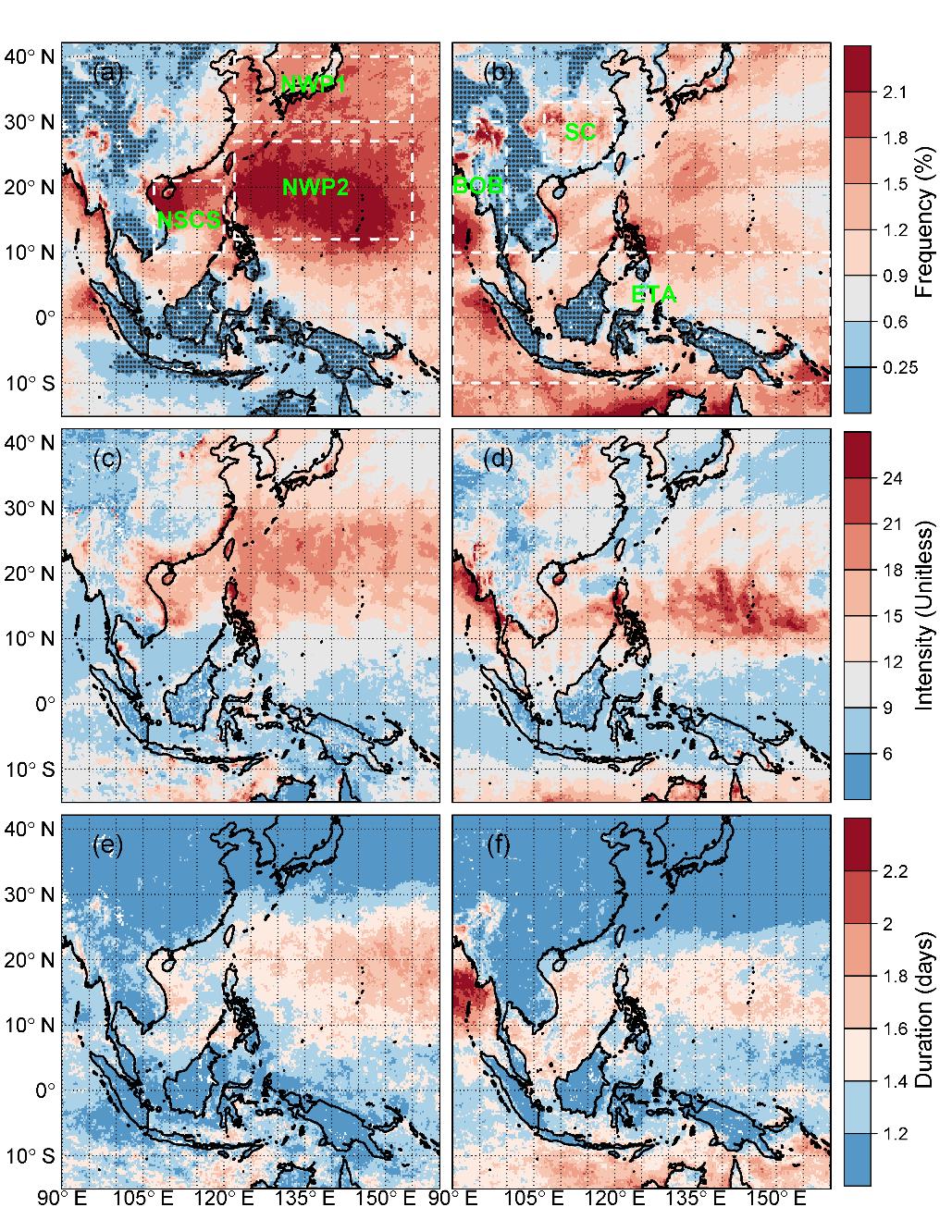Co-occurrences of wind extremes and precipitation extremes, known as compound wind and precipitation extremes (CWPEs), can disrupt and endanger shipment and shipping logistics. The associated winds and floods may cause severe socio-economic impacts in coastal and inland areas.
The Indo-Pacific region is frequently subject to cyclones, atmospheric rivers, and convective weather systems, and suffers from the resulting hydro-meteorological hazards. Therefore, the area is a potential hotspot as well as a good showcase for understanding mechanisms and drivers of compound events.
Recently, the research team led by Prof. YIN Baoshu from the Institute of Oceanology of the Chinese Academy of Sciences (IOCAS) revealed the climatology, variability, and drivers of compound wind and precipitation extremes across the Indo-Pacific.
The study was published in Geophysical Research Letters on Jun 25.
The study reported the regional and synoptic weather system dependence of CWPEs. The northwestern Pacific Ocean and its adjacent sea areas see the most frequent, intense, and longest-lasting CWPEs in summer, which are mainly driven by cyclones, while atmospheric rivers are one of the main drivers for CWPEs in central and western inland China and northwestern Indo-China Peninsula. The equatorial tropical areas have the smallest chance of witnessing CWPEs, and these tropical events are mainly governed by some convective systems.
The long-term changes in the frequency of CWPEs show a spatially-mixed pattern. "Such a pattern for frequency changes is mainly determined by the spatially heterogeneous changes in the dependence structure between univariate wind and precipitation extremes across the region," said Dr. LI Delei, first author of the study.
"We initiated new measures of compound wind and precipitation extreme in terms of its frequency, intensity, and duration. The novelty and significance of the study also lie in the first try of quantifying the contributions of different weather systems to the climatological mean and long-term of CWPEs," said Prof. YIN.
The study was supported by the Strategic Priority Research Program of the Chinese Academy of Sciences, the National Key Research and Development Programme of China, the National Natural Science Foundation of China, NSFC-Shandong Joint Fund, and the Youth Innovation Promotion Association, CAS.

The climatological mean (a, b) frequency (in percentage), (c, d) intensity (unitless quantity) and (e, f) duration (days) of CWPEs, in summer (left panels) and winter (right panels).
Li, D., Chen, Y., Messmer, M., Zhu, Y., Feng, J., Yin, B., & Bevacqua, E. (2022). Compound wind and precipitation extremes across the Indo-Pacific: Climatology, variability, and drivers. Geophysical Research Letters, 49, e2022GL098594.
(Text by LI Delei)
Media Contact:
ZHANG Yiyi
Institute of Oceanology
E-mail: zhangyiyi@qdio.ac.cn
(Editor: ZHANG Yiyi)
|
|

Address: 7 Nanhai Road, Qingdao, Shandong 266071, China
Tel: 86-532-82898902 Fax: 86-532-82898612 E-mail: iocas@qdio.ac.cn


